Fermented Foods vs. Probiotic Supplements: Unraveling the Gut Health Debate
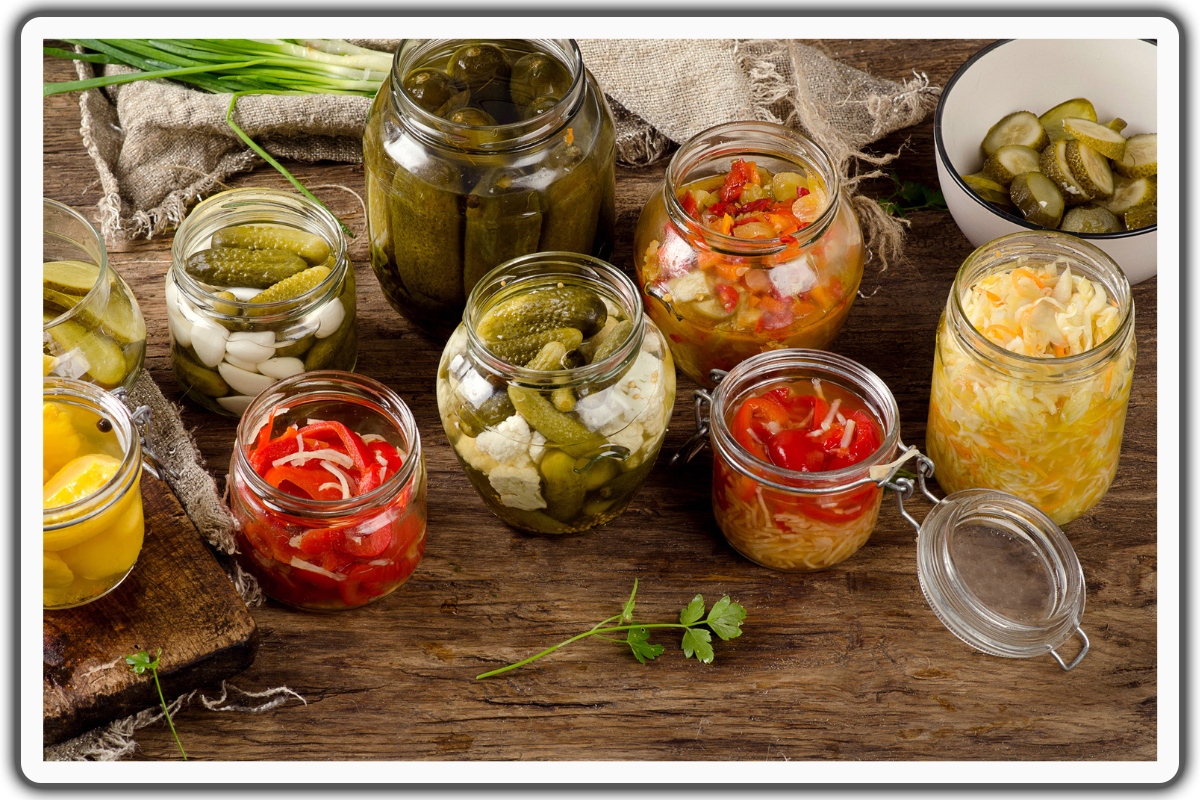
Probiotic Supplements vs Fermented Foods: According to a survey by the National Center for Health Statistics, 3 million more adults in the United States used probiotics or prebiotics in 2012 than did in 2007. Between 2014 and 2018, sales of probiotic supplements grew from $299.9 million to $395.35 million. By the year 2027, the global probiotic supplements market is expected to experience an annual growth rate of 10.43 percent, reaching $3.28 billion by 2027.
The driving force behind this growth is the rising occurrence of digestive issues and diarrhea, attributed to changing lifestyles and dietary habits. Should you join the probiotic supplement trend, or is sticking with fermented foods the better choice?
The History of Probiotics
About 3,000 years ago, Hippocrates — the “father of medicine”, declared that “death sits in the bowels,” adding that “bad digestion is the root of all evil.” He may have been more correct than we realized.
Interestingly enough, “probiotic” means “for life.” Live microorganisms that confer a health benefit on the host when administered in adequate amounts define probiotics.
Scientists have been aware of these organisms for a long time. At the beginning of the 1900s, Louis Pasteur, the scientist who came up with pasteurization. They identified the microorganisms required for food preservation and the process of fermentation. These were the good bacteria present in milk.
At about the same time, another scientist named Ilya Ilyich Metchnikoff, a Nobel Prize winner, found that people living in rural Bulgaria, despite poverty and a difficult climate, lived much longer than European city-dwellers. His research led him to believe the yogurt the people regularly consumed protected them. He theorized that the microorganisms in the yogurt — what we know as probiotics today — were counteracting the effects of the digestive system on illness and aging.
The Microbiome of Good and Bad Bacteria
Subsequently, Metchnikoff developed the foundational theory of the modern microbiome, suggesting that the digestive tract harbors a thriving populace of both beneficial microbes and harmful bacteria. According to this notion, any disruption in the equilibrium between these two types could lead to the unchecked proliferation of harmful bacteria. Resulting in intestinal harm and potentially affecting the entire body.
Advances in research have revealed that the microbiome plays a crucial role in maintaining health and preventing diseases. Imbalances or disruptions in the microbiome, known as dysbiosis, have been associated with various health conditions, including gastrointestinal disorders, cardiovascular diseases, autoimmune diseases, obesity, and more.
On the other hand, a balanced and diverse community of microorganisms in the body's various systems, such as the gut, skin, and mouth, plays a pivotal role in supporting digestion, nutrient absorption, and metabolism. Furthermore, a robust microbiome aids in strengthening the immune system. Helping the body defend against harmful pathogens and reducing the risk of infections. A healthy microbiome also contributes to mental health by regulating mood and reducing the risks of depression.
As a result of this, the global market for probiotics has experienced rapid growth over the years, driven by an increasing number of individuals seeking a way to achieve a balanced microbiome for human health.
Sources of Probiotics
1. Probiotics from Fermented Food
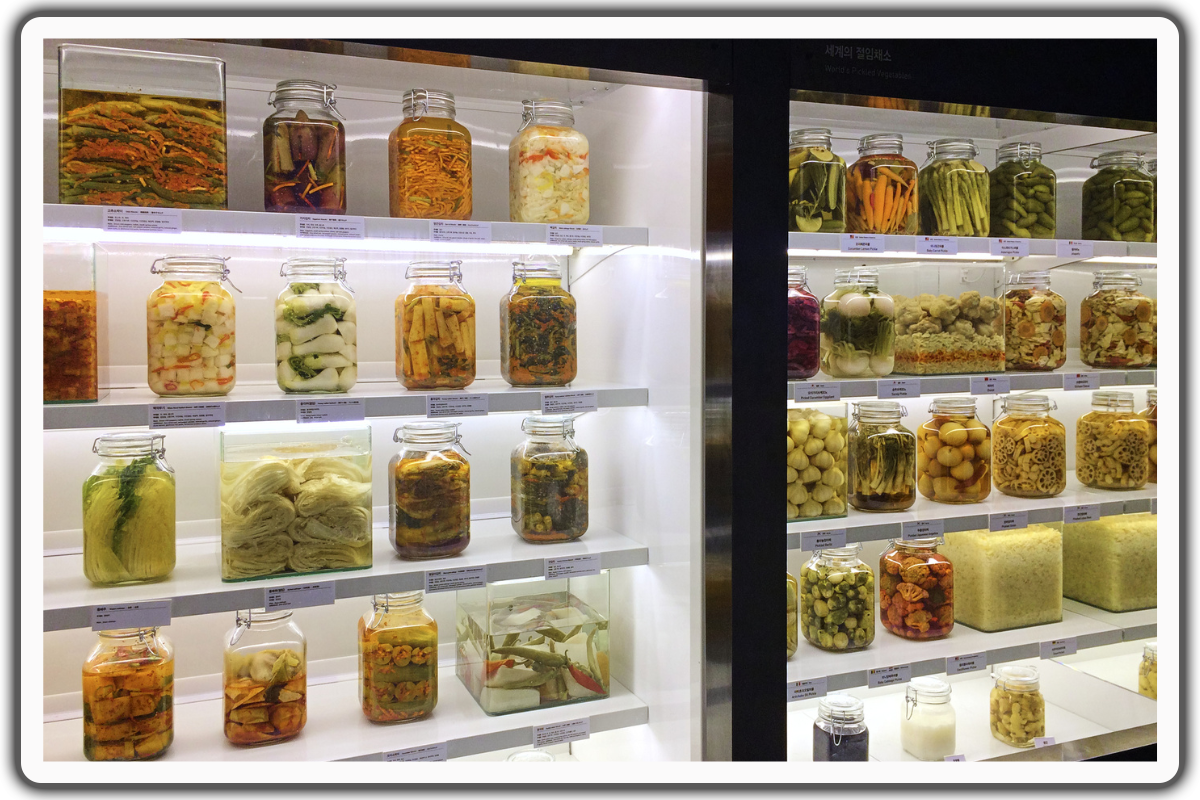
Probiotic Supplements vs Fermented Foods: Throughout history, people have relied on various fermented foods for their nutritional and healing benefits. These include yogurt, cheese, kefir, and other fermented foods that have been part of a healthy diet for centuries. The presence of beneficial bacteria in these foods has made them popular choices for both nourishment and medicinal purposes. Researchers noted in a 2015 study that the story of probiotics runs alongside human history, reaching back almost 10,000 years to ancient times.
The live microorganisms, such as bacteria and yeast, introduced during fermentation are the probiotic bacteria. These microorganisms can include strains like Lactobacillus, Bifidobacterium, and Saccharomyces.
Additionally, fermented food products frequently offer bacteria that contribute to improved health and support the development of advantageous gut bacteria. Together, the combination of live microorganisms and prebiotics in fermented foods supports establishing and maintaining a healthy gut microbiome, offering potential benefits to digestive and immune systems.
2. Probiotics in Supplement Form
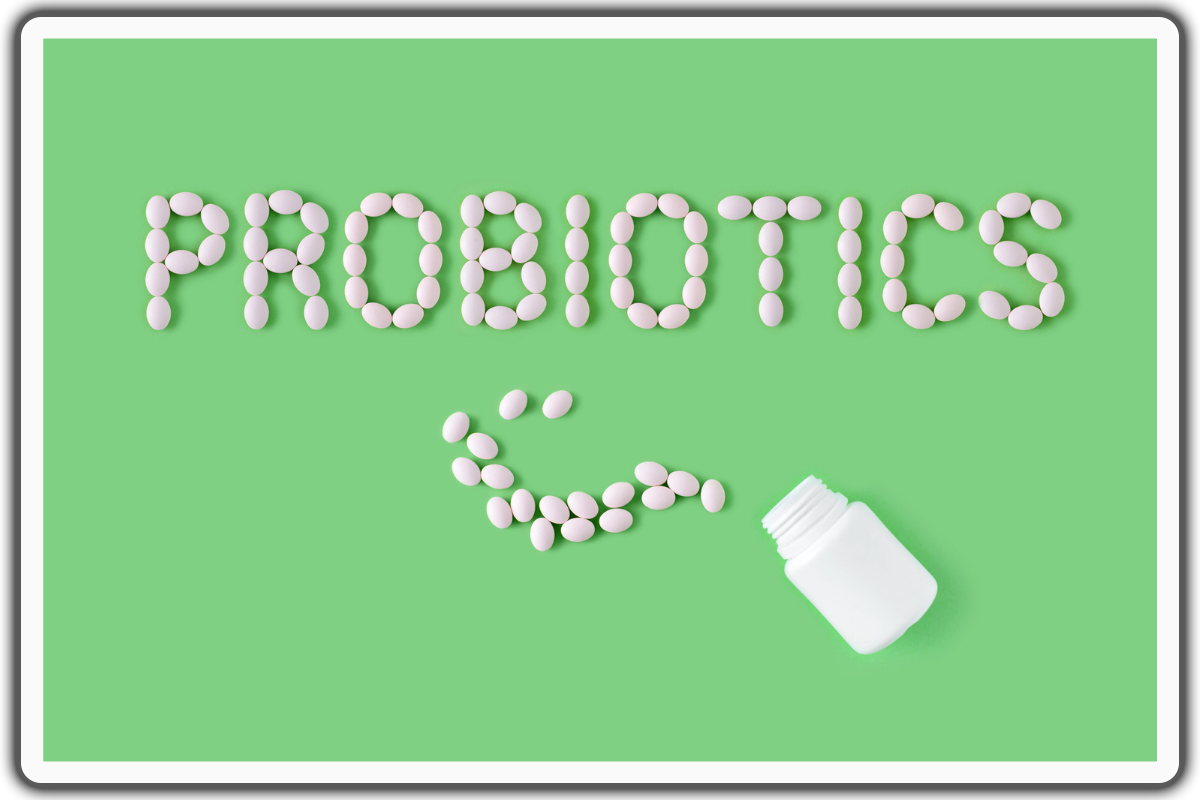
Probiotic Supplements vs Fermented Foods: Probiotic supplements are concentrated forms of live beneficial microorganisms, such as bacteria and yeast, taken orally to support and enhance gut health. These supplements are designed to introduce specific strains of probiotics into the digestive system, aiming to restore or maintain a balanced microbiome.
Probiotic supplements come in pill forms like capsules or tablets, powders, and even liquid formulations. Researchers often formulate them with well-researched strains of bacteria, such as Lactobacillus and Bifidobacterium species, chosen for their potential to confer health benefits.
Current Understanding of the Microbiome
Since the early 1900s, researchers have gained extensive knowledge regarding the microbiome. The gastrointestinal system contains countless microorganisms, such as bacteria, fungi, and viruses. This community is distinct for every individual and differs based on genetic factors, method of birth (natural or Cesarean), dietary choices, lifestyle habits, environmental influences, and other factors.
The development of the microbiome begins at the moment of birth when microorganisms establish residence in the human gut. Research has indicated that infants born through natural delivery possess more gut bacteria than those born via Caesarean section. Their exposure to the mother's vaginal and intestinal bacteria can account for this disparity.
Moreover, the microbiome is significantly impacted by our diet, especially the typical Western diet rich in fats and sugars while lacking in fiber.
The field of research is highly intricate, and scholars will persist in exploring it for many years to come. Still, numerous aspects remain shrouded in mystery. One such enigma is the lack of a clear definition of a "healthy" microbiome. Thus, there is still no clear line on what extent an individual would take to have a healthy microbiome. Consequently, no light sheds if a probiotic supplement is relatively helpful or harmful.
Demand Surge of Probiotic Supplements
Probiotic Supplements vs Fermented Foods: From the late 1990s onward, producers of supplements entered the market with a range of probiotic formulations, available in formats ranging from powders and tablets to drinkable mixes. Simultaneously, manufacturers of probiotic-rich foods like yogurt, kefir, and kombucha started promoting their offerings for digestive well-being, highlighting the presence of beneficial probiotics in fermented foods.
Consumers began to understand the importance of probiotics, recognizing their beneficial impact on health. Probiotics can counteract the negative effects caused by antibiotics and promote improved digestion for individuals. The demand for probiotic supplements surged, leading to a rapid increase in global market sales.
Issues Associated with Probiotic Supplements
Lack of FDA Regulation
Probiotic Supplements vs Fermented Foods: There are certain issues associated with these products. Firstly, due to their classification as dietary supplements, they lack regulation by the US Food and Drug Administration (FDA). This implies that we must depend solely on the manufacturers to ensure the production of high-quality items containing the ingredients they claim.
Numerous examinations of dietary supplements, such as probiotic supplements. They have shown that many of them do not contain the ingredients stated on their labels. A study conducted by ConsumerLab.com discovered that out of eight products tested, less than 1 percent contained the claimed number of live bacteria. Furthermore, only six products had a few thousand live bacteria, which was insufficient to yield any beneficial effects.
Ambiguity of Dosage
Secondly, a standardized daily dosage for probiotics isn't indicated. The exact amount needed is still uncertain due to the absence of a scientific agreement. The specific requirements might differ significantly from those of another individual, further contributing to the ambiguity.
Is it sufficient for a bottle to have approximately 10 billion colony-forming units (CFUs)? A study suggests that a single serving of fermented vegetables may contain the same amount of beneficial bacteria as an entire bottle of probiotics. This raises the question of whether these supplements are beneficial.
Decreasing CFU content
It's uncertain whether a consumer truly gets the number of CFUs indicated in the bottle upon consuming the supplement. Manufacturers usually indicate the CFU count at the time of production, yet factors like heat, moisture, and oxygen exposure can impact the viability of probiotics over the long shelf life.
Safety
The issue is whether the beneficial bacteria in a supplement can withstand the strong stomach acid and reach the intestines, where they are needed. According to the American Nutrition Association, certain species such as Lactobacillus, Bifidobacterium, and Streptococcus do not typically require enteric coating because they can survive their journey through the stomach. Nevertheless, the survival of L. bulgaricus and S. thermophilus, along with Leuconostoc and Lactococcus species, is compromised when they pass through the stomach. Certain manufacturers have started incorporating coatings or encapsulating their products to address this issue to shield the bacteria from stomach acid. However, it's important to note that researchers are still conducting further studies in this area.
Foods contain a greater range of microorganisms and higher levels of probiotics than supplements, potentially contributing to improved overall health. According to research, probiotic supplements have only a limited number of species, containing only those that are beneficial.
Cost
Probiotic Supplements vs Fermented Foods: Moreover, the issue of expense must be taken into account. Often, probiotic supplements are priced higher than fermented foods relative to the CFUs they offer. While probiotics are being incorporated into various food items in a daily diet, such as smoothies, nutrition bars, and even chocolates, there remains a lack of evidence regarding the effectiveness of these cultures within the human body and overall health.
Benefits of Fermented Foods
Despite the ambiguity in the safety and effectiveness of probiotic supplements. Consuming fermented foods is a safe and effective way to aid in balancing the body's microbiome. Various species of live and active cultures are present in fermented foods.
The fermentation assessment carried out in collaboration by WHO (World Health Organization) and FAO (Food and Agriculture Organization) of the United Nations discloses that nutritional advantages can be derived from fermentation. Fermentation is associated with the degradation of anti-nutritional factors. The increased bioavailability of minerals, the improvement of the digestibility of proteins in tannin-rich cereals. The degradation of indigestible oligosaccharides.
Considering all the information above, it’s probably best to start with fermented foods before turning to probiotic supplements.
Nevertheless, not all fermented foods include live cultures of beneficial bacteria. Heat treatment, for example, renders those with inactive cultures as it kills them. Bread is an example; the baking process removes any probiotics. Likewise, sauerkraut is often canned, leading to a decrease in active cultures. Beer and wine undergo processing that eliminates live bacterial organisms. Thus, here are some probiotic foods you can enjoy:
Fermented Foods with Probiotics
1. Yogurt
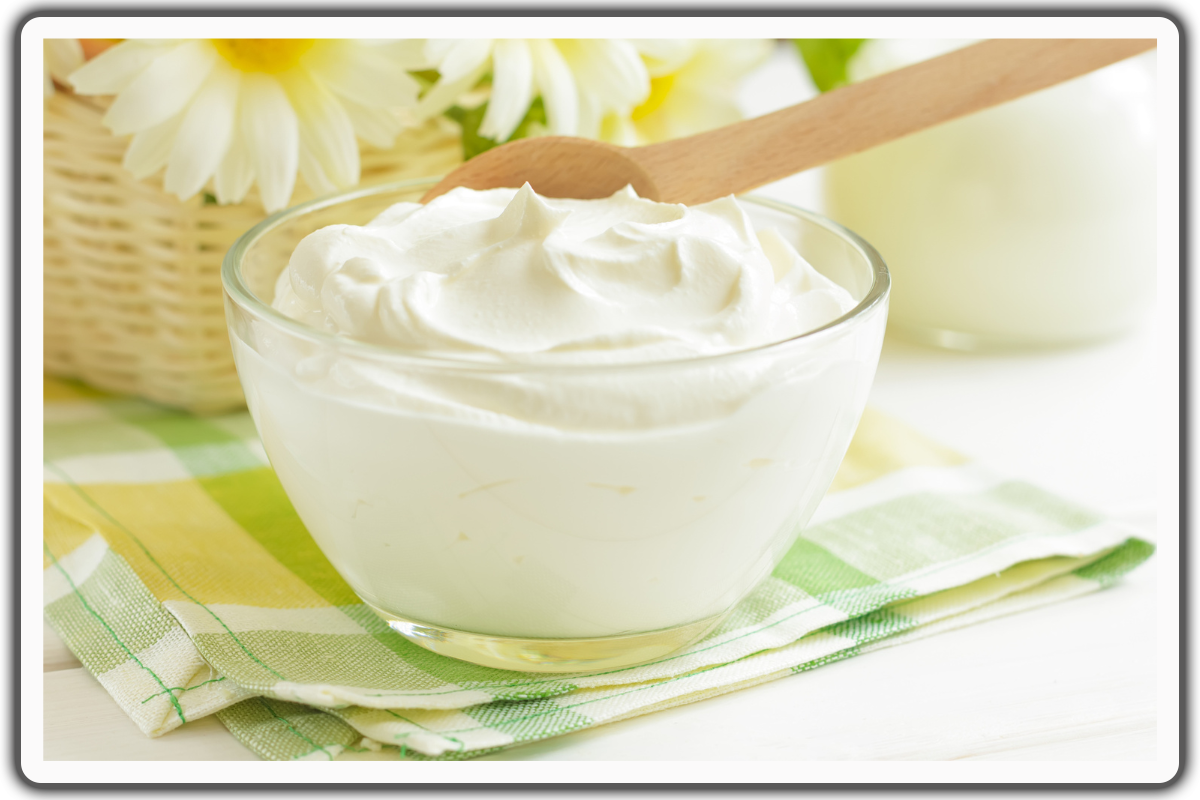
Yogurt, both traditional and Greek varieties, contains live cultures of beneficial bacteria such as Lactobacillus acidophilus and Bifidobacterium. These live cultures contribute to the probiotic content of yogurt, supporting gut health and digestion.
2. Kefir
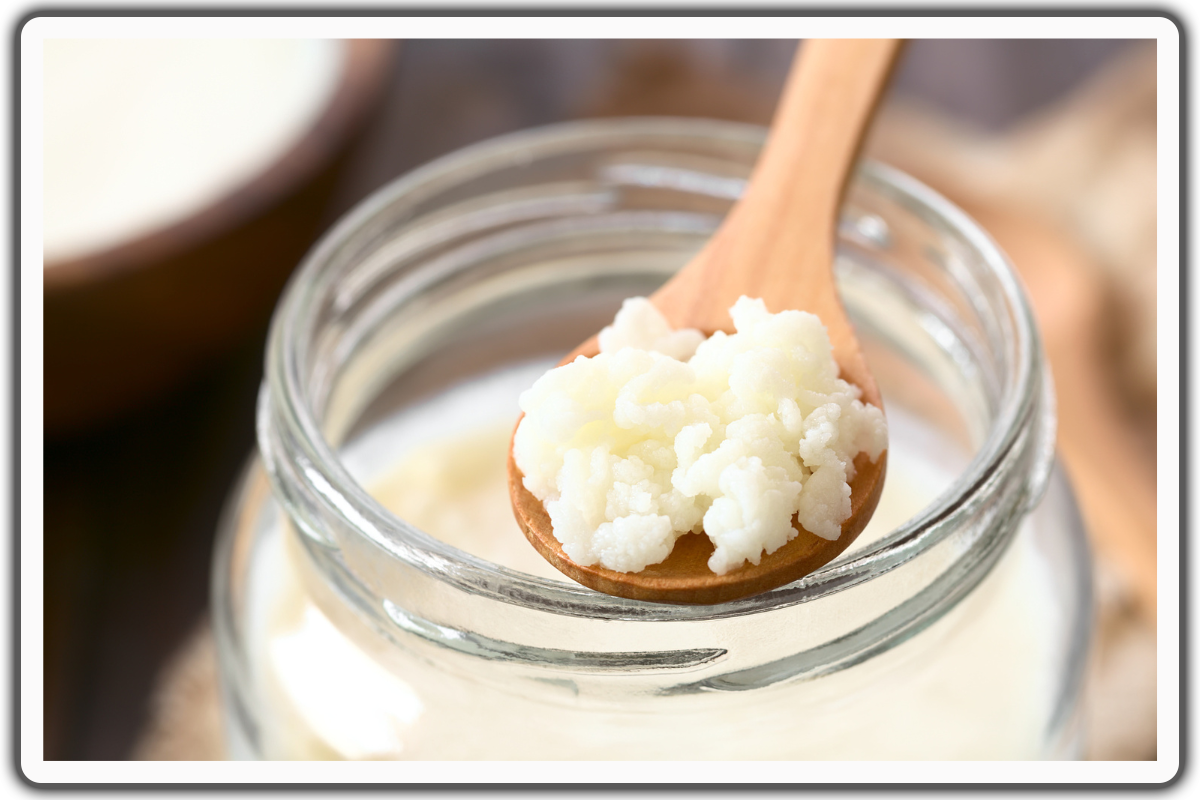
Kefir is a fermented beverage from kefir grains that boasts a diverse array of Lactobacillus and Bifidobacterium strains, complemented by beneficial yeast. This combination contributes to benefits such as nurturing gut health by fostering a balanced microbiome, bolstering the immune system's functions, and even aiding in the improved digestion of lactose, making it easier for some individuals to digest dairy products.
3. Sauerkraut
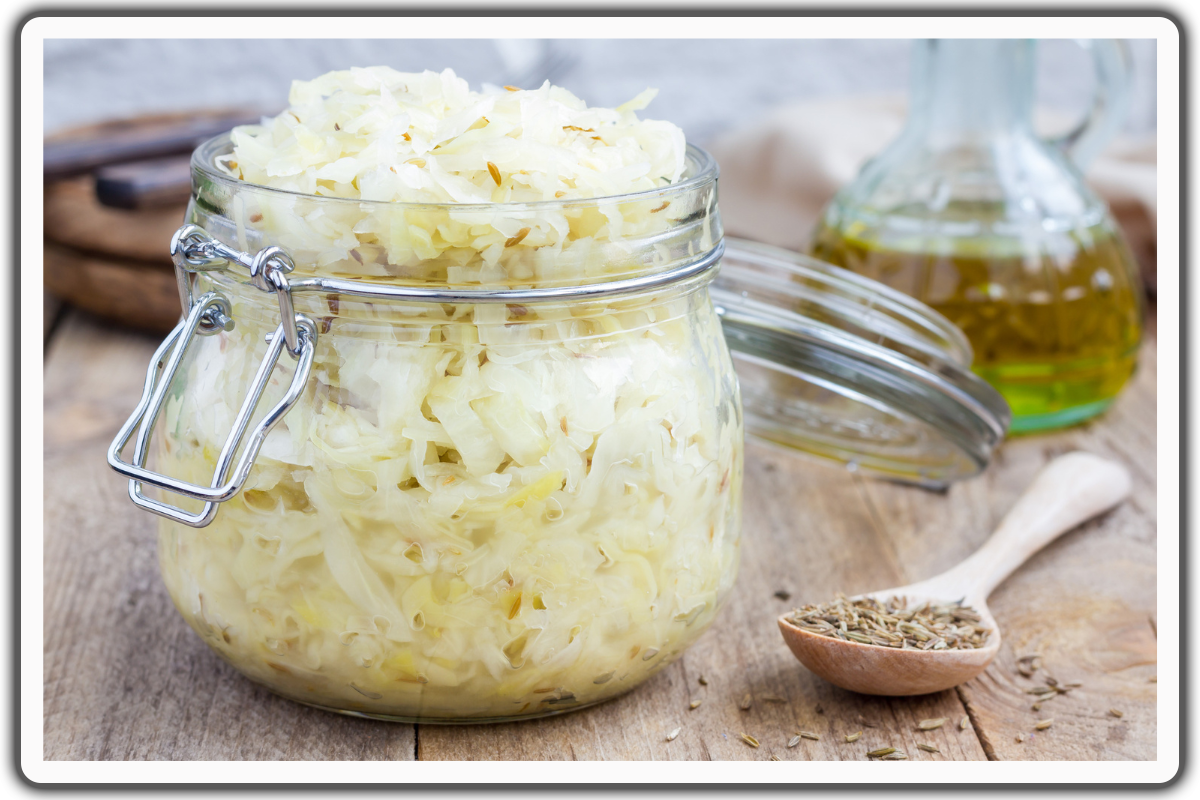
Sauerkraut, a fermented cabbage dish, contains live microbes like Lactobacillus plantarum, a beneficial strain of lactic acid bacteria. This bacterium plays a major role in fermentation, transforming the raw cabbage into sauerkraut while producing various compounds that contribute to improved digestion, detoxification, and mental health.
4. Kimchi

Kimchi is a type of fermented food that contains beneficial bacteria, such as Lactobacillus kimchi and other diverse strains. Consuming kimchi offers improved digestion, as the probiotics contribute to a balanced gut microbiome. Additionally, kimchi's bioactive compounds may provide anti-inflammatory effects, potentially promoting overall health. Emerging research also suggests a possible enhancement of the gut-brain connection, indicating that kimchi consumption positively impacts cognitive health. Regularly including kimchi in your diet can contribute to a diverse range of beneficial bacteria and compounds supporting various well-being aspects.
5. Miso
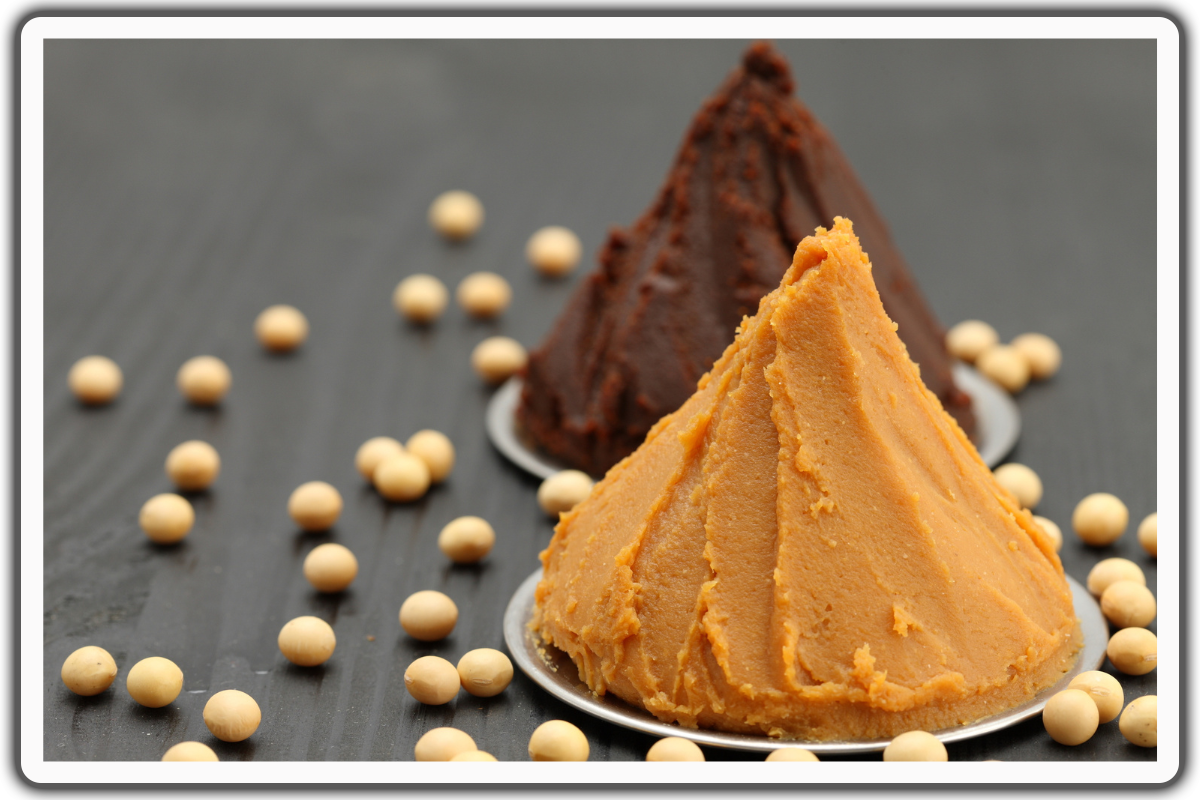
Miso is a fermented food that contains various strains of bacteria, including Lactobacillus. Its consumption offers potential benefits, such as promoting gut health by contributing to a balanced microbiome, enhancing the immune system's function, and serving as a valuable source of essential nutrients.
6. Soybean Tempeh
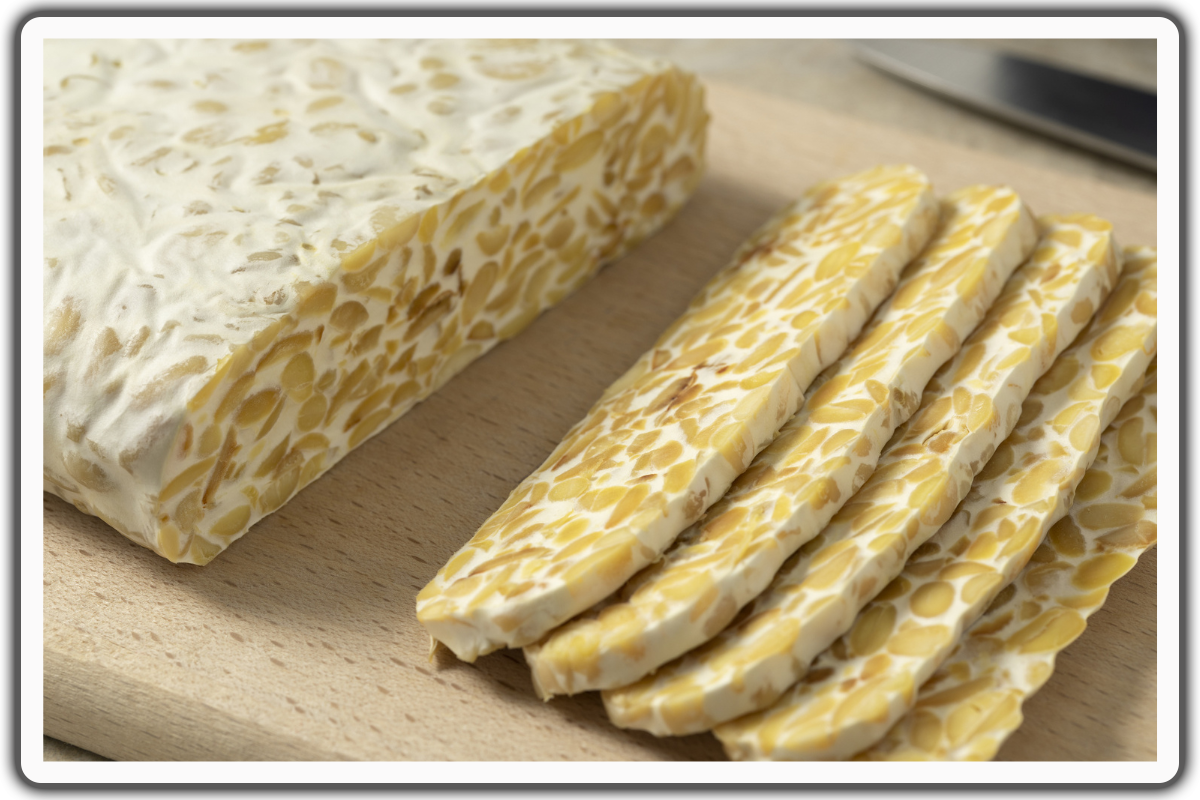
Tempeh is a fermented food that contains the beneficial microorganism Rhizopus oligosporus. Consuming tempeh can offer several potential benefits, including improved gut health, as the probiotic content may help maintain a balanced and diverse gut microbiome. Additionally, tempeh serves as a valuable protein source, making it beneficial for individuals seeking plant-based protein options. Beyond its protein content, tempeh can aid in nutrient absorption, potentially enhancing the body's ability to absorb essential nutrients from other foods. Incorporating tempeh into your diet can contribute to overall health and nutritional well-being.
7. Kombucha
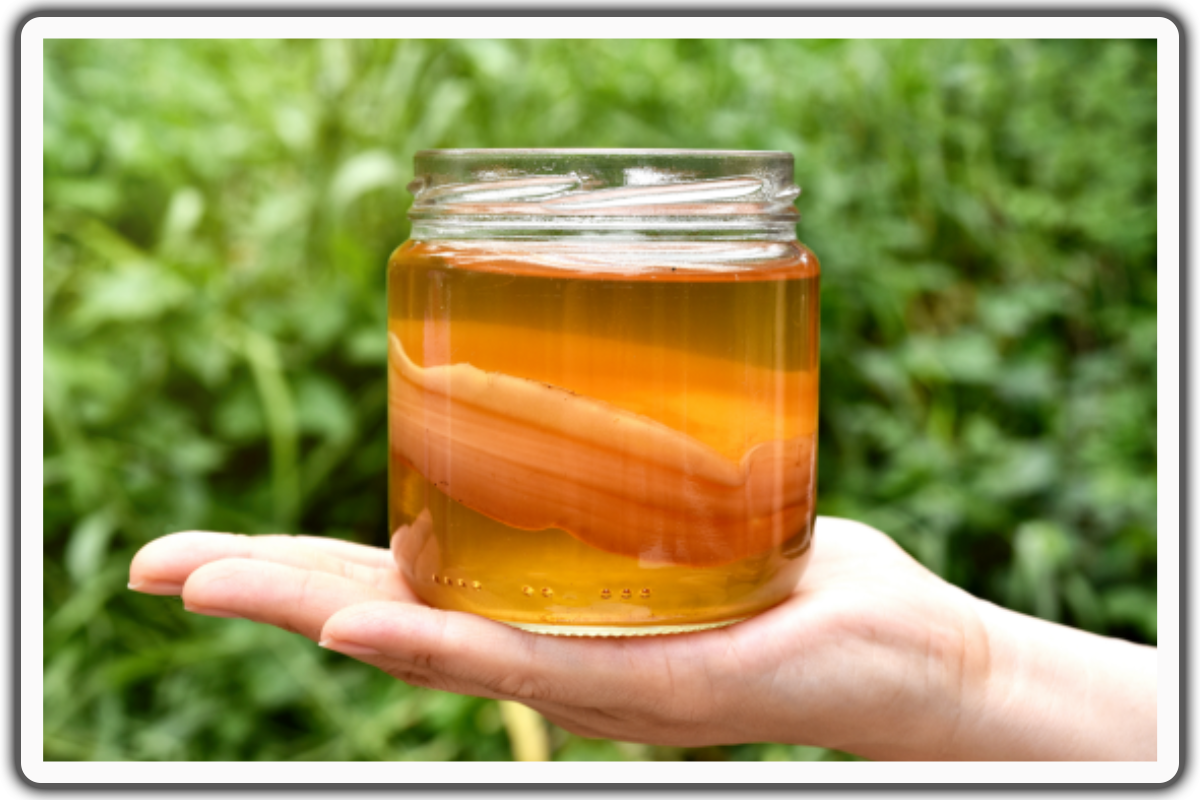
Kombucha is a tea drink that undergoes fermentation through a symbiotic culture consisting of bacteria and yeast (SCOBY). The probiotic content in kombucha, including Acetobacter and Saccharomyces, supports digestive health by helping to maintain a balanced gut microbiome. Kombucha contains compounds produced during fermentation, such as organic acids and antioxidants, that assist the body's natural detoxification processes. The antioxidants in kombucha and its probiotic content help combat oxidative stress and support the body's ability to eliminate toxins.
8. Fermented Pickles
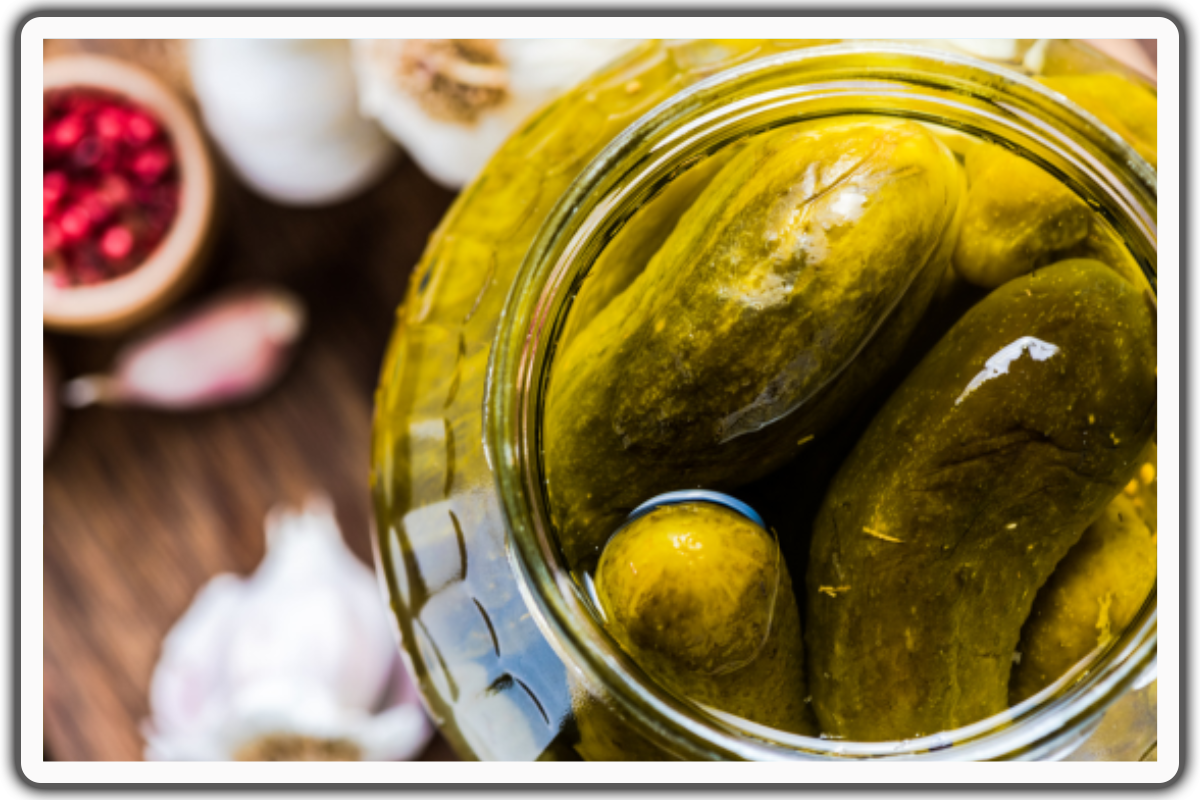
Infused with strains like Lactobacillus plantarum and Lactobacillus brevis, these pickles offer potential advantages. They aid in promoting digestive wellness, contribute to regulating blood sugar levels, and serve as a dietary fiber source, fostering a balanced gut and overall health.
Conclusion
In conclusion, opting for fermented foods as a source of probiotics offers a holistic and natural approach to promoting gut health. Fermented foods provide live cultures of beneficial bacteria and bring a host of additional nutrients and bioactive compounds. This synergy can contribute to a diverse and thriving gut microbiome, which plays a crucial role in overall well-being.
Probiotic Supplements vs Fermented Foods: By choosing fermented foods, individuals can align with historical dietary practices that have stood the test of time, transcending cultural boundaries. These foods offer a connection to tradition while simultaneously delivering digestive and immune system benefits.
While probiotic supplements have their advantages, relying on fermented foods allows for a more integrated and enjoyable way to nurture your gut health. From tangy sauerkraut to creamy yogurt, the array of flavors and textures adds culinary richness and nutritional value to daily meals.
Incorporating various fermented foods into your diet can create a harmonious relationship between your taste buds and your gut. As you savor these time-honored foods, you're not only indulging your palate but also nourishing your body with a symphony of beneficial microbes that contribute to your overall vitality.
FAQs
What are the most common causes of hip pain?
Hip pain is a common complaint that affects people of all ages. Various factors can cause hip pain.
1. Prolonged Sitting: Staying seated for extended periods can cause hip pain because it puts pressure on the hip joints.
2. Arthritis: This condition is the leading cause of hip pain. Arthritis, such as Hip Osteoarthritis or Rheumatoid Arthritis, can cause hip pain due to the inflammation and degeneration of the hip joint.
3. Hip Bursitis: An inflammation of the bursae is called Bursitis. Bursae (bursa) are small, fluid-filled sacs that cushion the hip joint. Repetitive movements or prolonged pressure on the hip can lead to bursitis.
4. Muscle Strains: These strains can be caused by overuse, sudden movements, or excessive physical activity. Muscle strain can occur in the surrounding muscles of the hip joint.
5. Tendinitis: Refers to the inflammation of the tendons in the hip, which can cause hip pain. Overuse or muscle imbalances or sudden injuries lead to tendinitis in the hip area.
6. Hip Fracture: Typically caused by trauma or falls, hip fractures also cause hip pain, especially in older adults.
7. Sciatica: This condition is characterized by compression or irritation of the sciatic nerve, causing hip pain. The sciatic nerve runs from the lower back down to the legs.
Understanding the causes helps you take appropriate measures to alleviate and prevent hip pain.
What are hip flexors?
Hip flexors are a group of muscles located in the front of the hip joint. They play a crucial role in everyday movements such as walking, running, and bending. The primary function of hip flexors is to flex the hip joint, which means bringing the thigh towards the chest.
The main hip flexor muscles include the iliopsoas, rectus femoris, and sartorius. These muscles work in coordination with each other to provide stability and support for the hip joint. Tight or weak hip flexors can lead to various issues, such as low back pain, hip pain, and limited range of motion. Stretching and strengthening exercises help maintain the flexibility and strength of the hip flexors.
What should you do if you’re experiencing hip pain when sitting?
If you frequently experience hip pain when sitting, it's essential to identify the underlying causes and seek appropriate treatment to improve your overall hip health. The first step is to make an appointment with a healthcare professional, such as a doctor or physical therapist, who can evaluate your symptoms and provide a diagnosis. They can help determine the cause of your hip pain and recommend appropriate treatment options.
Healthcare professionals often work with you to develop a personalized treatment plan, depending on the severity of the pain. Your doctor may refer you to a specialist, such as an orthopedic surgeon or a physical therapist. Treatment options vary, from strengthening hip exercises and stretches to other techniques that provide targeted care. Various medical techniques to reduce pain and improve your mobility include massage therapy, heat therapy, and physiotherapy.
Hip pain can be a sign of a more serious underlying condition, so it should not be ignored. It is important to address hip pain promptly, especially if it is chronic, to prevent further complications.
